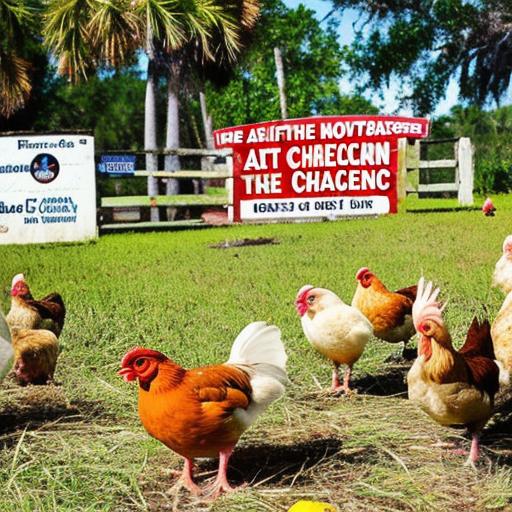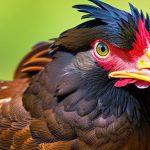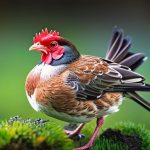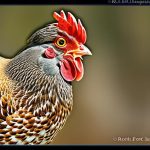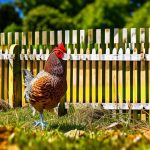Keeping chickens in Lake Placid, Florida has become increasingly popular in recent years. This small town, known for its beautiful lakes and friendly community, has seen a rise in backyard chicken keeping as more residents embrace the benefits of raising their own flock. In this article, we will explore the legal requirements for keeping chickens in Lake Placid, discuss the best breeds for the local climate, provide tips for building a chicken coop, and offer advice on feeding, caring for, and protecting chickens from predators. We will also address common health issues and challenges that chicken keepers may face in Lake Placid.
Key Takeaways
- Keeping chickens in Lake Placid, Florida is a popular hobby for many residents.
- Legal requirements for keeping chickens in Lake Placid include obtaining a permit and following zoning regulations.
- Choosing a breed of chicken that can tolerate the hot and humid climate of Lake Placid is important.
- Building a secure and well-ventilated chicken coop is necessary to protect chickens from predators and the elements.
- Feeding and caring for chickens in Lake Placid requires providing them with a balanced diet and access to clean water.
Legal requirements for keeping chickens in Lake Placid
Before starting a backyard flock in Lake Placid, it is important to familiarize yourself with the local zoning laws and regulations. Each municipality may have different rules regarding the keeping of chickens, so it is essential to check with your local government or zoning department to ensure compliance. In Lake Placid, there are specific guidelines that must be followed in order to keep chickens legally.
The permitting process in Lake Placid typically involves filling out an application and paying a fee. The number of chickens allowed per household may also be limited, so it is important to check the specific regulations for your area. It is worth noting that some neighborhoods or homeowners associations may have additional restrictions or guidelines that must be followed.
Choosing the right breed of chicken for Lake Placid’s climate
Lake Placid’s climate is characterized by hot and humid summers, which can pose challenges for certain breeds of chickens. When selecting a breed for your backyard flock, it is important to consider their ability to tolerate the local weather conditions.
Some breeds that are well-suited to hot and humid climates include the Rhode Island Red, Australorp, and Leghorn. These breeds are known for their heat tolerance and ability to lay eggs consistently even in high temperatures. It is also important to consider the egg-laying capabilities of different breeds, as some are more prolific layers than others.
Building a chicken coop in Lake Placid
Building a chicken coop is an essential part of keeping chickens in Lake Placid. The coop provides shelter and protection for the birds, as well as a place for them to roost and lay eggs. When constructing a chicken coop, there are several factors to consider.
First, you will need to gather the necessary materials, which may include lumber, wire mesh, roofing materials, and hardware. It is important to choose materials that are durable and weather-resistant, as they will be exposed to the elements year-round.
Design considerations for a chicken coop in Lake Placid include providing adequate ventilation to keep the birds cool in the hot summer months, as well as insulation to keep them warm during the occasional cold snaps in winter. The coop should also have nesting boxes for the hens to lay their eggs, as well as perches for roosting.
One of the most important aspects of building a chicken coop in Lake Placid is ensuring that it is predator-proof. Common predators in the area include raccoons, opossums, and snakes. To protect your flock, it is important to use sturdy materials and secure all openings to prevent predators from gaining access to the coop. Additionally, installing an electric fence or burying wire mesh around the perimeter of the run can help deter predators.
Feeding and caring for chickens in Lake Placid
Proper nutrition is essential for keeping chickens healthy and productive. In Lake Placid’s hot and humid climate, it is important to provide chickens with a balanced diet that meets their nutritional needs.
A commercial layer feed is typically recommended for adult laying hens, as it contains the necessary nutrients for egg production. It is also important to provide fresh water at all times, especially during the hot summer months when chickens may drink more to stay hydrated.
In addition to their regular feed, chickens in Lake Placid can benefit from supplemental treats such as fruits, vegetables, and kitchen scraps. However, it is important to avoid feeding them anything that is toxic or harmful to their health.
Regular health checks and maintenance are also important for caring for chickens in Lake Placid. This includes checking for signs of illness or injury, trimming their nails and beaks if necessary, and keeping their living area clean and free of waste.
Protecting chickens from predators in Lake Placid

Lake Placid is home to a variety of predators that pose a threat to backyard chickens. Raccoons, opossums, snakes, and even neighborhood dogs can all pose a risk to your flock. To protect your chickens from predators, there are several steps you can take.
First, it is important to secure the coop and run with sturdy materials such as wire mesh or hardware cloth. All openings should be covered to prevent predators from gaining access. It is also a good idea to bury wire mesh around the perimeter of the run to prevent predators from digging under.
Natural deterrents can also be effective in keeping predators away from your chickens. Planting thorny bushes or installing motion-activated lights can help deter raccoons and other nocturnal predators. Additionally, keeping the area around the coop clean and free of food scraps can help reduce the likelihood of attracting unwanted visitors.
Health considerations for chickens in Lake Placid
Like any other pets or livestock, chickens in Lake Placid are susceptible to certain health issues. It is important for chicken keepers to be aware of common ailments and take preventative measures to keep their flock healthy.
Some common health issues in chickens include respiratory infections, parasites such as mites or lice, and egg-laying problems. Regular vaccinations can help prevent certain diseases, so it is important to consult with a local veterinarian who specializes in poultry to determine the appropriate vaccination schedule for your flock.
Finding a local veterinarian who is knowledgeable about poultry health is essential for chicken keepers in Lake Placid. They can provide guidance on preventative measures, diagnose and treat illnesses, and offer advice on general chicken care.
Benefits of keeping chickens in Lake Placid
There are many benefits to keeping chickens in Lake Placid. One of the most obvious benefits is the availability of fresh eggs. Chickens that are well-cared for and provided with a balanced diet will lay eggs that are nutritious and delicious.
In addition to providing fresh eggs, chickens also produce high-quality fertilizer for gardens. Their manure can be composted and used to enrich the soil, resulting in healthier plants and increased yields.
Keeping chickens in Lake Placid also offers educational opportunities for children. They can learn about responsibility, animal care, and the life cycle of chickens by actively participating in their care. This hands-on experience can foster a love for animals and nature, as well as teach important life skills.
Common challenges of keeping chickens in Lake Placid
While there are many benefits to keeping chickens in Lake Placid, there are also some challenges that chicken keepers may face. One common challenge is dealing with noise complaints from neighbors. Roosters can be particularly noisy, so it is important to check local regulations regarding roosters before adding them to your flock.
Managing waste and odor can also be a challenge when keeping chickens in a residential area. Regular cleaning of the coop and run, as well as proper composting of manure, can help minimize odor and prevent the buildup of waste.
Balancing chicken care with other responsibilities can also be challenging for some chicken keepers. Chickens require daily care, including feeding, watering, and cleaning. It is important to consider your schedule and available time before starting a backyard flock to ensure that you can provide the necessary care and attention.
Is keeping chickens in Lake Placid right for you?
Keeping chickens in Lake Placid can be a rewarding and enjoyable experience. Fresh eggs, fertilizer for gardens, and educational opportunities for children are just a few of the benefits that come with raising your own flock. However, it is important to consider the legal requirements, climate considerations, and potential challenges before starting a backyard flock.
By familiarizing yourself with the local regulations, choosing the right breed for the climate, building a predator-proof coop, and providing proper care and nutrition, you can successfully keep chickens in Lake Placid. Join the growing community of chicken keepers in this charming town and enjoy the many benefits that come with raising your own flock.
If you’re considering keeping chickens in Lake Placid, Florida, you may also be interested in learning about what vegetables quails eat. Quails are small birds that make great backyard pets and can provide fresh eggs. Poultry Wizard has a helpful article on their website that discusses the different vegetables that quails enjoy as part of their diet. To find out more about what vegetables quails eat, check out their article here. Additionally, if you’re wondering whether guinea fowl can live with chickens, Poultry Wizard has another informative article that explores this topic. Discover the answer and learn more about keeping guinea fowl with chickens by clicking here. Lastly, if you’re looking for tips on how to insulate a chicken coop to ensure your feathered friends stay warm during the colder months, Poultry Wizard has a comprehensive guide available. Find out how to properly insulate your chicken coop by visiting their article here.
FAQs
What are the regulations for keeping chickens in Lake Placid, Florida?
According to the Lake Placid Code of Ordinances, residents are allowed to keep up to six chickens on their property as long as they are kept in a secure enclosure and do not create a nuisance.
Do I need a permit to keep chickens in Lake Placid?
No, a permit is not required to keep chickens in Lake Placid as long as you follow the regulations set forth in the Code of Ordinances.
What kind of enclosure do I need for my chickens?
The enclosure must be secure and provide adequate space for the number of chickens you have. It should also be predator-proof and provide shelter from the elements.
Can I keep roosters in Lake Placid?
No, roosters are not allowed in Lake Placid due to noise concerns.
What are the penalties for violating the chicken regulations in Lake Placid?
Violating the chicken regulations can result in fines and/or the removal of the chickens from your property. Repeat offenders may face more severe penalties.
Are there any restrictions on selling eggs from my chickens in Lake Placid?
There are no specific regulations regarding the sale of eggs from backyard chickens in Lake Placid, but it is recommended that you follow safe food handling practices and comply with any applicable state or local laws.
Meet Walter, the feathered-friend fanatic of Florida! Nestled in the sunshine state, Walter struts through life with his feathered companions, clucking his way to happiness. With a coop that’s fancier than a five-star hotel, he’s the Don Juan of the chicken world. When he’s not teaching his hens to do the cha-cha, you’ll find him in a heated debate with his prized rooster, Sir Clucks-a-Lot. Walter’s poultry passion is no yolk; he’s the sunny-side-up guy you never knew you needed in your flock of friends!

